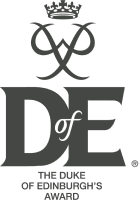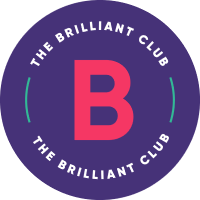This subject is part of the Faculty of Science and PE
Our Head of Faculty is
Mr D Bell – dbell@tcat.school
Our subject teacher and email address is
Mrs G Deeks gdeeks@tcat.school
Our subject intent
Is designed to give an introductory overview to some of the key principles, knowledge, understanding and skills relevant to the animal care sector. Learners will study animal health, which is externally assessed via a written paper-based exam, as this knowledge and understanding is essential when caring for animals. Learners will also develop their safe animal handling skills, which is vital in order to effectively care for animals.
Curriculum Subject Offer
Year 10 Animal Care
Subject intent
The Pearson BTEC Level 1/Level 2 First Award in Animal Care has been developed to provide an engaging introduction to the animal care sector for learners aged 14 years and above. It is designed to be taken as part of a broad curriculum, alongside GCSEs and/or other vocational subjects.
This BTEC First Award is designed to give an introductory overview to some of the key principles, knowledge, understanding and skills relevant to the animal care sector. Learners will study animal health, which is externally assessed via a written paper-based exam, as this knowledge and understanding is essential when caring for animals. Learners will also develop their safe animal handling skills, which is vital in order to effectively care for animals.
Topic Breakdown
|
|
Half term 1 |
Half term 2 |
|
Autumn |
Unit 1 – Animal Health – exam January | Unit 1 – Animal Health – exam January |
|
Spring |
Unit 2 coursework – Animal Handling | Unit 2 coursework – Animal Handling |
|
Summer |
Unit 2 coursework – Animal Handling | Unit 3 coursework – Animal Welfare |
You will be assessed by examination and coursework. 25% of the final grade is from an exam for Unit 1 in year 10 usually January which can we retaken in May is needed. Units 2, 3 and 4 are all coursework assessed and this is completed throughout the unit in year 10 and 11.
Animal Care full Scheme of Work - Year 10
Year 11 Animal Care
Subject intent
The Pearson BTEC Level 1/Level 2 First Award in Animal Care has been developed to provide an engaging introduction to the animal care sector for learners aged 14 years and above. It is designed to be taken as part of a broad curriculum, alongside GCSEs and/or other vocational subjects.
This BTEC First Award is designed to give an introductory overview to some of the key principles, knowledge, understanding and skills relevant to the animal care sector. Learners will study animal health, which is externally assessed via a written paper-based exam, as this knowledge and understanding is essential when caring for animals. Learners will also develop their safe animal handling skills, which is vital in order to effectively care for animals.
Topic Breakdown
|
|
Half term 1 |
Half term 2 |
|
Autumn |
Unit 3 coursework – Animal Welfare | Unit 3 coursework – Animal Welfare |
|
Spring |
Unit 4 coursework – Housing and accommodation | Unit 4 coursework – Housing and accommodation |
|
Summer |
You will be assessed by examination and coursework. 25% of the final grade is from an exam for Unit 1 in year 10 usually January which can we retaken in May is needed. Units 2, 3 and 4 are all coursework assessed and this is completed throughout the unit in year 10 and 11.
Animal Care full Scheme of Work - Year 11
Within each subject we have our own specific personalised marking and feeback policy.
|
Faculty: Science and PE |
||
|
|
KS3 |
KS4 |
|
Verbal dialogue |
Teachers circulate with purpose, checking pupils’ work, marking if appropriate and collecting information on whole-class strengths, errors, misconceptions, knowledge gaps etc. The teacher adjusts their lesson accordingly. Starter whole class feedback most lessons to reflect on last lesson and correct mistakes In PE verbal dialogue as a result of observation is the most used form of feedback |
Teachers circulate with purpose, checking pupils’ work, marking if appropriate and collecting information on whole-class strengths, errors, misconceptions, knowledge gaps etc. The teacher adjusts their lesson accordingly. Starter whole class feedback most lessons to reflect on last lesson and correct mistakes |
|
Self/peer assessment |
Written feedback through strengths/targets and annotations. Peer and self-assessment should be completed in blue pen. |
Written feedback through strengths/targets and annotations. Peer and self-assessment should be completed in blue pen. |
|
Whole Class Feedback |
Whole class feedback given at the start of most lessons usually verbally to address misconceptions from last lesson and share positives. |
Whole class feedback given at the start of most lessons usually verbally to address misconceptions from last lesson and share positives. |
|
Written comments |
Done using marking strength and target codes on a key piece of work per topic. Codes are written into books and pupils copy the targets and strengths associated with the codes into their books. They then complete the corresponding action. |
Done using marking strength and target codes on a key piece of work per topic. In KS4 this is on 6-mark exam questions. Codes are written into books and pupils copy the targets and strengths associated with the codes into their books. They then complete the corresponding action. Pupils will correct answers in blue using a mark scheme |
|
Frequency of feedback |
Live feedback and responsive teaching will take place in most lessons where pupils have been asked to complete tasks Whole-class feedback will take place most lessons. Peer/self-assessment Used in most lessons Written comments will take place once per topic on a key piece of work chosen by the class teacher. Marking codes will be used. |
Live feedback and responsive teaching will take place in most lessons where pupils have been asked to complete tasks Whole-class feedback will take place most lessons. Peer/self-assessment Used in most lessons Written comments will take place once per topic on a key piece of work chosen by the class teacher. Marking codes will be used. 6-mark exam questions |
|
Response to feedback |
When directed after marking/whole class feedback, pupils will be expected to make a response in blue pen. In other instances, pupils will be expected to apply their feedback to a different task under the title DIRT. This would be done in blue pen. In further instances, pupils may be asked to answer questions posed by the teacher. Corrections to key word spellings highlighted also to be corrected |
When directed after marking/whole class feedback, pupils will be expected to make a response in blue pen. In other instances, pupils will be expected to apply their feedback to a different task under the title DIRT. This would be done in blue pen. In further instances, pupils may be asked to answer questions posed by the teacher. Corrections to key word spellings highlighted also to be corrected |
|
Summative assessment |
Waterfall assessments completed at the end of every completed topic. 50% content from topic and 50% from previously taught content. End of year exams to cover all content covered through the year. |
Waterfall assessments completed at the end of every completed topic. 50% content from topic and 50% from previously taught content. End of year exams to cover all content covered through the year. Mocks for 10 and 11.
|






